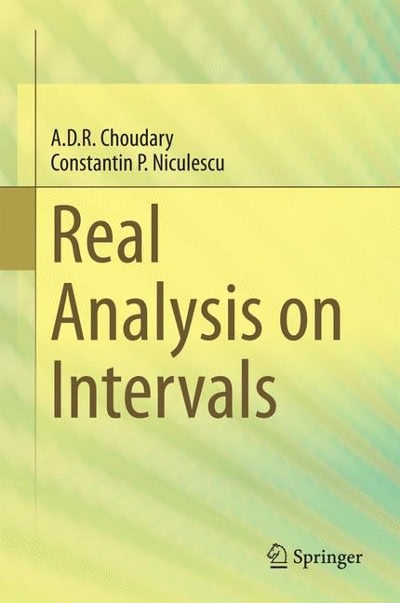Question
1.What do you call the symbol ? A. Arbitrary constant B. Euler number C. Integral sign D. Integrand 2. What do you call the in
1.What do you call the symbol ?
A. Arbitrary constant
B. Euler number
C. Integral sign
D. Integrand
2. What do you call the in the antiderivative + C?
A. Arbitrary constant
B. Euler number
C. Integral sign
D. Integrand
3. What do you call the process of finding the general antiderivative of a given function?
A. Chain Rule
B. Differentiation
C. Integration
D. Optimization
4. Which of the following is the integral of e^x dx ?
A. x + C
B. e^x + C
C. || +
D. sin +
5. Jacob aims to finish his homework in Basic Calculus. One of the problem in his homework is to evaluate 6 . What would be the first
step for him to solve the integral?
A. 6
B. 6 ||- 3
C. 6
D. 6 ||
6. The following are functions that can be best integrated using Constant Rule, except:*
A.
B. 5
C.
D. 10
7. Using the theorems on antidifferentiation, what is the (12^2 + 2 ) ?
A. 4^3 + ^2 +
B. 4^3 + 2^2 +
C. 24^3 + ^2 +
D. 24 + 2 +
8. If we evaluate ^2 (5 + 2^3)^8 , and let = 5 + 2^3, what is ?
A. ^2
B. 6
C. 6^2
D. (5 + 2^3)
9. If the 1/(x^6) is re written to ^(6) , what is its antiderivative?
A. -1/(x^5)
B. -1/(x^5) + C
C. (x^5)/5 + C
D. (x^5)/(-5) +
10. Find the value of t in e^(0.109861)t = 70.
A. 35.67
B. 36.67
C. 37.67
D. 38.67
11. To depict rates of change, it follows that k may be positive or negative. What denotes the meaning of b > d?
A. it denotes decay
B. it denotes decrease
C. it denotes growth
D. it denotes uniformity
12. Suppose the bacteria grow at a rate of () = 2^ . Assume the culture still starts with 10, 000 bacteria. Find Q(t). How many bacteria are in the dish after 3 hours?
A. 22,099
B. 21,099
C. 20,099
D. 19,099
13. Suppose the rate of growth of the fly population is given by () = ^(0.01) , and the initial fly population is 100 flies. How many flies are in the population after 15 days?
A. 116
B. 126
C. 136
D. 146
14. What is the width of the interval [1, 5]?
A. 7
B. 6
C. 5
D. 4
15. For any integral, we can omit the constant of integration (i.e. +C).
A. False. We can omit the constant of integration only for definite integrals.
B. False. We can omit the constant of integration only for indefinite integrals.
C. True. Constant of Integration is necessary in solving any integral.
D. Both A and B
16. To evaluate the definite integral of a function f from a to b, we just need to find its antiderivative F and compute the _________.
A. difference between the values of the antiderivative at b and a.
B. sum between the values of the antiderivative at b and a.
C. difference between the values of the derivative at b and a.
D. sum between the values of the derivative at b and a.
17. Which of the following is the antiderivative of () = 3^2?
A. 3x + C
B. x^3 + C
C. 2x^3 + C
D. 6x +C
18. Find the area of the region bounded by the curves = ^2 2 and = .
A. 3
B. 7/2
C. 4
D. 9/2
19. What are the intersections of the curve = ^2 2 and the line = ?
A. (-1,1) and (-2,2)
B. (-1,-1) and (-2,2)
C. (-1,1) and (2,2)
D. (-1,-1) and (2,2)
20. In the region above the -axis bounded by the function = 4 ^2 3, what are the limits of integration?
A. x = -1, x = -3
B. x = 1, x = 3
C. x = 1, x = -3
D. x = 1, x = -3
Step by Step Solution
There are 3 Steps involved in it
Step: 1

Get Instant Access to Expert-Tailored Solutions
See step-by-step solutions with expert insights and AI powered tools for academic success
Step: 2

Step: 3

Ace Your Homework with AI
Get the answers you need in no time with our AI-driven, step-by-step assistance
Get Started


